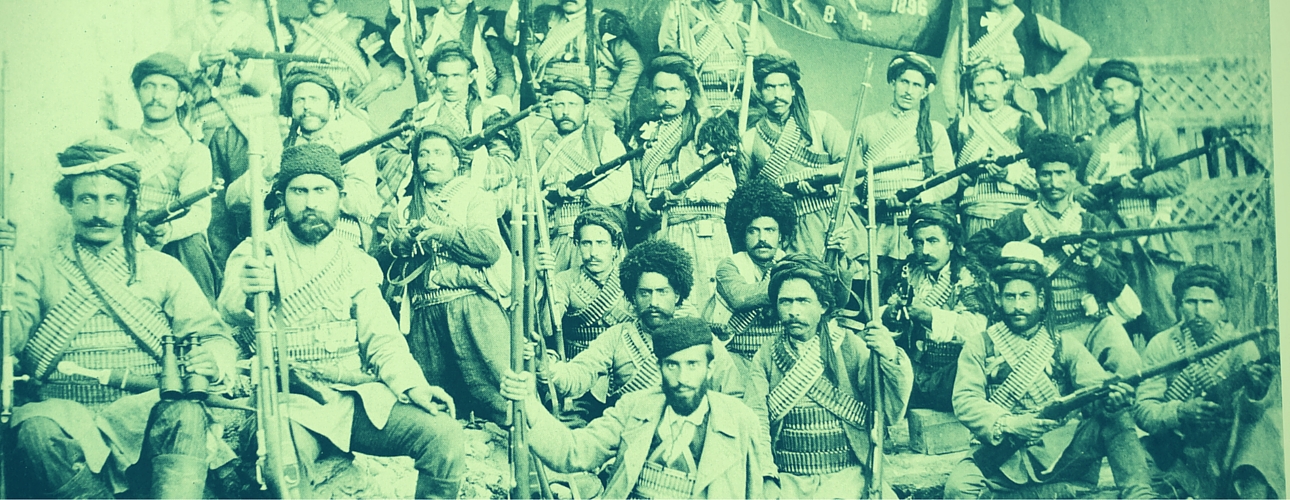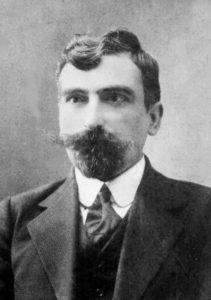
Aram Manoukian [1879–1919]

Born in the village of Zeyva, in Ghapan, Zangezour, Aram Manoukian attended parochial schools in Shoushi and Yerevan. He joined the ARF at a young age and became an organizer among laborers in Batumi, in 1901, and then in Gandzak and Kars, where by 1903–04 he had already become a highly valued leader.
In 1904 he crossed into Iran, then to Van, where for four years he was the central figure. After the traitor Davo informed Turkish authorities about the location of ARF arms caches, Aram was arrested and tortured. He was eventually released during the Ottoman Constitutional Regime.
He attended the Fourth World Congress in 1907. He was a teacher for a time in Ordu. He then went to Geneva for a year to visit Rouben Ter Minasian, then returned to Van.
In 1915, after Vana lshkhan and Arshak Vramian were assassinated, Aram was left alone to face a catastrophic situation. He led and became the symbol of the heroic Battle of Van in April 1915, and was appointed governor of free Vaspourakan.
He accompanied the people of Van in their exodus toward the Caucasus. In 1916–17, in Tiflis, Aram was active in the affairs of the ARF Bureau, the Armenian National Council, and Western Armenian refugees.
As the National Council’s special envoy and plenipotentiary representative in Yerevan, Aram was proclaimed “dictator” of the Ararat region in May 1918 and led the resistance against the invading Turks. He was the symbol of the victory in the Ararat plain and was considered by the population as the founder of the Armenian Republic.
In the Republic’s first government (under Hovhannes Kachaznouni as prime minister), Aram was Minister of the Interior and Minister of Supplies. He contracted typhus, which was wreaking havoc at that time, and died at age 40, on January 29, 1919.
But why do we consider the comfort and happiness built by Europe upon our misfortunes as humanitarianism?… Oh, how I wish for the day when the orphanages and all such similar bourgeois institutions will cease to serve as “oases” for our people, when the people of this unfortunate nation will be able to—with the genius of its own culture and its own just economic merits—establish, for all of the country and all of its masses and peoples, an oasis more diverse and fundamental…
From Aram Manoukian’s Memoirs


